Welcome to the first Virtual Roundtable. This series will bring together five subject matter experts from five different verticals to talk about an advanced technology. The series will focus on use cases, applications and case studies in emerging technologies. The experts on this panel are in conversation with , Lead, NASSCOM Community.
 Kunal Nandwani is the co-founder and CEO of uTrade Solutions, an India-based fintech startup. He is a Consultant with the Ministry of Finance, Government of India. Currently, based out of India, Kunal previously worked with investment banks in London and started off his career with Lehman Brothers.
Kunal Nandwani is the co-founder and CEO of uTrade Solutions, an India-based fintech startup. He is a Consultant with the Ministry of Finance, Government of India. Currently, based out of India, Kunal previously worked with investment banks in London and started off his career with Lehman Brothers.
 Rajesh Dhuddu has over 20 years’ experience in payments, fintech, telecom and BPM. Currently, he is the SVP at Quatrro Processing Services and Chair of Blockchain SIG at NASSCOM. He is an active speaker, startup mentor and Blockchain evangelist in the fintech sector.
Rajesh Dhuddu has over 20 years’ experience in payments, fintech, telecom and BPM. Currently, he is the SVP at Quatrro Processing Services and Chair of Blockchain SIG at NASSCOM. He is an active speaker, startup mentor and Blockchain evangelist in the fintech sector.
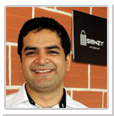 Ankit Ratan is the cofounder of Signzy, a global digital trust platform. In its short 2 year Journey has won awards from RBI, MAS, IBM, Thomson Reuters and also judged Ankit as Forbes 30 under 30. He is also working with top names in BFSI sector and has worked in data analytics in New York and Shanghai.
Ankit Ratan is the cofounder of Signzy, a global digital trust platform. In its short 2 year Journey has won awards from RBI, MAS, IBM, Thomson Reuters and also judged Ankit as Forbes 30 under 30. He is also working with top names in BFSI sector and has worked in data analytics in New York and Shanghai.
 Mohnish Sharma is the Co-Founder/CEO of Harabaag, an AgriTech startup, where he is integrating his wide-ranging experience in delivering customer-focused products, technology, and marketing to deliver impactful agriculture innovations. Prior to this, he led two startups as their CEO. His journey in Innovation started in 2006, when he served as the Senior Program Manger at Symantec Research Labs, Los Angeles.
Mohnish Sharma is the Co-Founder/CEO of Harabaag, an AgriTech startup, where he is integrating his wide-ranging experience in delivering customer-focused products, technology, and marketing to deliver impactful agriculture innovations. Prior to this, he led two startups as their CEO. His journey in Innovation started in 2006, when he served as the Senior Program Manger at Symantec Research Labs, Los Angeles.
- Kunal, let’s start with you. Given your presence across 10-12 countries, tell us about the scale of impact that blockchain is having? How does India compare both in terms of scale and pace of change?
Blockchain helps build trust among communities in a consensual way, allowing equal opportunities for all, transparently and immutably. This can have great applications in decentralized crowdsourced platforms. Decentralisation democratises the real time decision making and (arguably) leads to better decisions.
Bitcoin is the most scaled up application on Blockchain. It has allowed for a borderless, digital, virtual, decentralised currency where people have started to put all their trust in. Especially away from their own countries fiat currencies, due to geo-political challenges in different countries like US presidential elections last year, Brexit, Demonetisation in India, etc. As people distrust their Governments, Bitcoin goes up.
Whilst Blockchain is an exciting “new” technology, its use case is not very relevant in the centralised workflow systems, example banks. In my humble opinions, banks will not decentralise themselves from the decision making (and just become a node in the bitcoin network), and will not like to share their customer transactions data either. So, Blockchain may not create any value for them. And in case there use cases are around using private sharing among authorised banks only, then Blockchain as well as Normal shared databases can work equally well.
Key use cases of Blockchain where it can truly scale need to be crowdsourced and decentralised ones. For example, wikipedia, imdb, linux, google, etc. are great use cases where the community inputs and consumption builds value in the platforms, and can be shared equitably among the community. Initial coin offerings allow for such communities to scale and tokenise the value among them. (This has the potential to disrupt the corporate structures altogether).
Blockchain impact worldwide is limited to crypto-currencies as of now. Many more great platforms are in works, slowly building their communities, but it shall take years to mature. Identity (like cove identity), social networks (like steemit), and other communities (like Kik, Filecoin, Iota) are likely to create an impression within this decade. These are all global stories, irrespective of where their teams maybe based, or where they holding companies may be incorporated.
Regarding Blockchain use in India, it is fairly limited to some use cases being done by banks, and some other institutions here and there. There is no high potential, crowdsourced community led Blockchain use case that I am aware of. Otherwise crypto wallets in India leading to Bitcoin and Ether investments are growing slowly, primarily due to major rise in the values of the cryptos. And Indian government (like most other emerging nations) has not been positive on ICOs or transacting with crypto currencies, though their firm regulations are yet to follow.
Hence, in my opinion, the real use case of Blockchain in India so far is only investments in Bitcoin alike crypto currencies so far.
- Rajesh, you have been working as both a practitioner and an evangelist of Blockchain in India. So, two questions. First, given that we are still struggling with going cashless, is not Blockchain similar to the bullet train debate? Second, outside of fintech, what sort of application can the technology have, for example, healthtech?
First, given that we are still struggling with going cashless, is not Blockchain similar to the bullet train debate?
Not really. I think our comparison is completely wrong. Blockchain which I believe is more of a business solution rather than just a tech solution. It is most suited for companies born digitally. For long we have been trying to force fit our offline processes to meet the requirements of an online business. Blockchain helps us to pre-empt this.
Moreover, the sweet spot for Blockchain is convergence of IOT (including Industrial IOT), Smart Contracts and Micropayments. With more than 50 billion connected devices expected to appear on the horizon by 2020 and growing adoption of connected devices being involved in commerce, for example, a connected washing machine reordering detergent powder directly from ecommerce sites, connected refrigerator ordering food and other consumables directly, Blockchain is expected to play a major role to drive this commerce as it supports Smart Contracts which will ensure that adequate governance structure is available in the two examples mentioned previously and also provides a payment structure especially when high frequency purchases are involved with low transaction value or amounts. These can be supported through various Blockchain based currencies (generally referred to as alt coins) whose cost of authorizing a transaction is much much lower compared to authorizing fiat currency based digital payments. Further, Blockchain has the potential to rapidly fuel Peer to Peer commerce, Peer to Peer asset sharing or collaboration without the need for an intermediary to facilitate such transactions. For example, all car owners in the neighbourhood can enter into an agreement to share their respective cars and arrive at a collaboration / payment method using Blockchain technology. A similar concept has already been power with regards to power sharing and trading with Brooklyn Micro Grid in USA.
Second, outside of fintech, what sort of application can the technology have, for example, healthtech?
There are several areas where Blockchain has demonstrated great potential to transform businesses. Loyyal a Blockchain company is transforming the loyalty industry. Everledger has demonstrated the ability to transform Luxury goods business and protect it from counterfeiting. It has also established the ability to provide the much required provenance in Supply Chain Management. Companies like Factom are using Blockchain technology to safeguard connected video cameras especially in the border land of USA from cyber threats and malware. The concept of Decentralized Apps (Dapps) in Blockchain has a great potential to secure critical infrastructure from DDOS attacks or attacks similar to the ones experienced by Equifax and Dyn – a domain name registry company.
In the area of Government to Citizen services, companies like Chromaway have demonstrated the ability to digitize land records in safe and secure way. Few healthcare startups in Europe are using Blockchain tech to facilitate safe and secure exchange of healthcare records amongst the various players in the ecosystem like Physicians, Hospitals, Insurance companies, Medical Records Owner (Patient) and his / her respective families. Blockchain also has the ability to personalize insurance policies both Health and Car Insurance based on healthy living and safe driving habits of the insured that can be collected and collated through IOT devices and analysed on a Blockchain network. So it is completely unreasonable and illogical to say that Blockchain’s potential is confined only to fintech or cryptocurrencies. These have gained prominence over others as the first commercial application of Blockchain in the world is Bitcoin which is the king of all cryptocurrencies.
- Ankit, you have been working on using Blockchain and AI for KYC at banks. First, apart from the fact that it saves time, what are the other benefits of it? Second, what traction have you seen in Indian market?
Saving time I guess is a consequence of having a process that is digital yet secure. Once you create a protocol that people can trust digitally it allows you to give great user experience, increase reach at a very low operations cost.
We are seeing good adoption among FIs as they are looking to get digital themselves. AI part of the business has started seeing serious business growth both for us and our customers. Blockchain, at least, for our customers is more experimental and even they are trying to figure out how best to scale this.
4. Blockchain in agritech? Who would have thought of that? Mohnish, tell us about it. Apart from the one you are engaged in, are there any other potential use cases of Blockchain in agritech?
You are right, who would have thought of that, but now everyday, new use cases keep on cropping up. The most direct use case is provenance – identifying the source of a crop, and this is being worked on by a number of startups.
We at Harabaag are using Blockchain to link stakeholders (farmers, intermediaries and buyers) in the post-harvest supply chain. In addition, we are keeping our eyes open on the following two use cases…
1. A farmer-controlled open digital identity of a farmer/farm that can be used by multiple vendors to provide products and services.
2. A Blockchain based solution to track sales of “licensed” agri-input prodcuts (seeds, pesticides and fertilizers)
And as we become more familiar with Blockchain, and think of its implication, the more possibilities open up for us. Blockchain is such a fundamental change in data storage and access that it will take us a few years to realize its full potential. We are looking forward to fun and exciting times.
Share your thoughts and suggestions about the series in the comments section. If you would like us to conduct a roundtable on any new technology, let us know at community@nasscom.in





 Kunal Nandwani is the co-founder and CEO of uTrade Solutions, an India-based fintech startup. He is a Consultant with the Ministry of Finance, Government of India. Currently, based out of India, Kunal previously worked with investment banks in London and started off his career with Lehman Brothers.
Kunal Nandwani is the co-founder and CEO of uTrade Solutions, an India-based fintech startup. He is a Consultant with the Ministry of Finance, Government of India. Currently, based out of India, Kunal previously worked with investment banks in London and started off his career with Lehman Brothers. Rajesh Dhuddu has over 20 years’ experience in payments, fintech, telecom and BPM. Currently, he is the SVP at Quatrro Processing Services and Chair of Blockchain SIG at NASSCOM. He is an active speaker, startup mentor and Blockchain evangelist in the fintech sector.
Rajesh Dhuddu has over 20 years’ experience in payments, fintech, telecom and BPM. Currently, he is the SVP at Quatrro Processing Services and Chair of Blockchain SIG at NASSCOM. He is an active speaker, startup mentor and Blockchain evangelist in the fintech sector. Ankit Ratan is the cofounder of Signzy, a global digital trust platform. In its short 2 year Journey has won awards from RBI, MAS, IBM, Thomson Reuters and also judged Ankit as Forbes 30 under 30. He is also working with top names in BFSI sector and has worked in data analytics in New York and Shanghai.
Ankit Ratan is the cofounder of Signzy, a global digital trust platform. In its short 2 year Journey has won awards from RBI, MAS, IBM, Thomson Reuters and also judged Ankit as Forbes 30 under 30. He is also working with top names in BFSI sector and has worked in data analytics in New York and Shanghai. Mohnish Sharma is the Co-Founder/CEO of Harabaag, an AgriTech startup, where he is integrating his wide-ranging experience in delivering customer-focused products, technology, and marketing to deliver impactful agriculture innovations. Prior to this, he led two startups as their CEO. His journey in Innovation started in 2006, when he served as the Senior Program Manger at Symantec Research Labs, Los Angeles.
Mohnish Sharma is the Co-Founder/CEO of Harabaag, an AgriTech startup, where he is integrating his wide-ranging experience in delivering customer-focused products, technology, and marketing to deliver impactful agriculture innovations. Prior to this, he led two startups as their CEO. His journey in Innovation started in 2006, when he served as the Senior Program Manger at Symantec Research Labs, Los Angeles.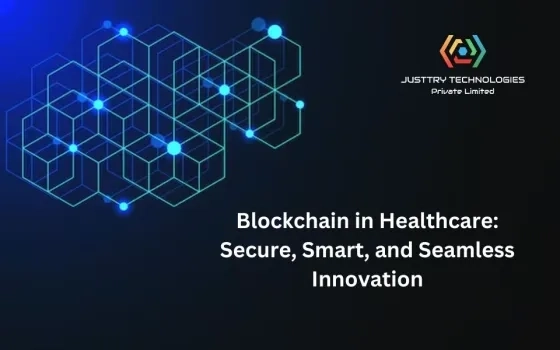

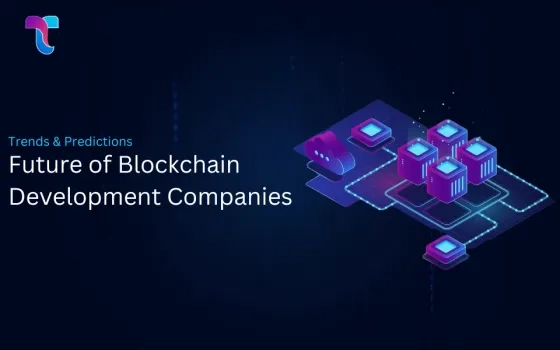

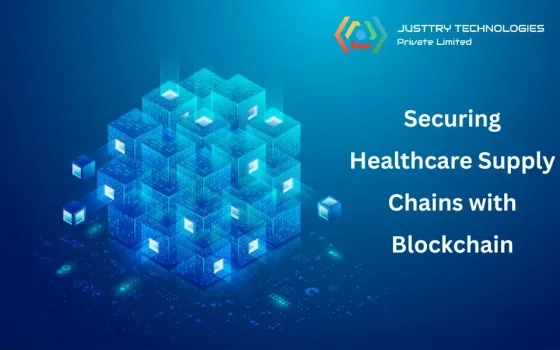
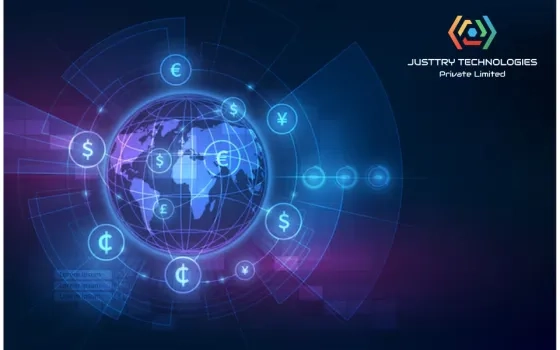
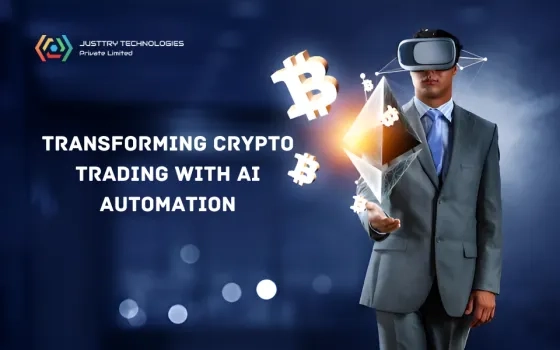



Comment
Good initiative...
Two important things we need to discuss further
This is a good Initiative...
Blockchain for social community
Great to see the application. Would love to understand this more